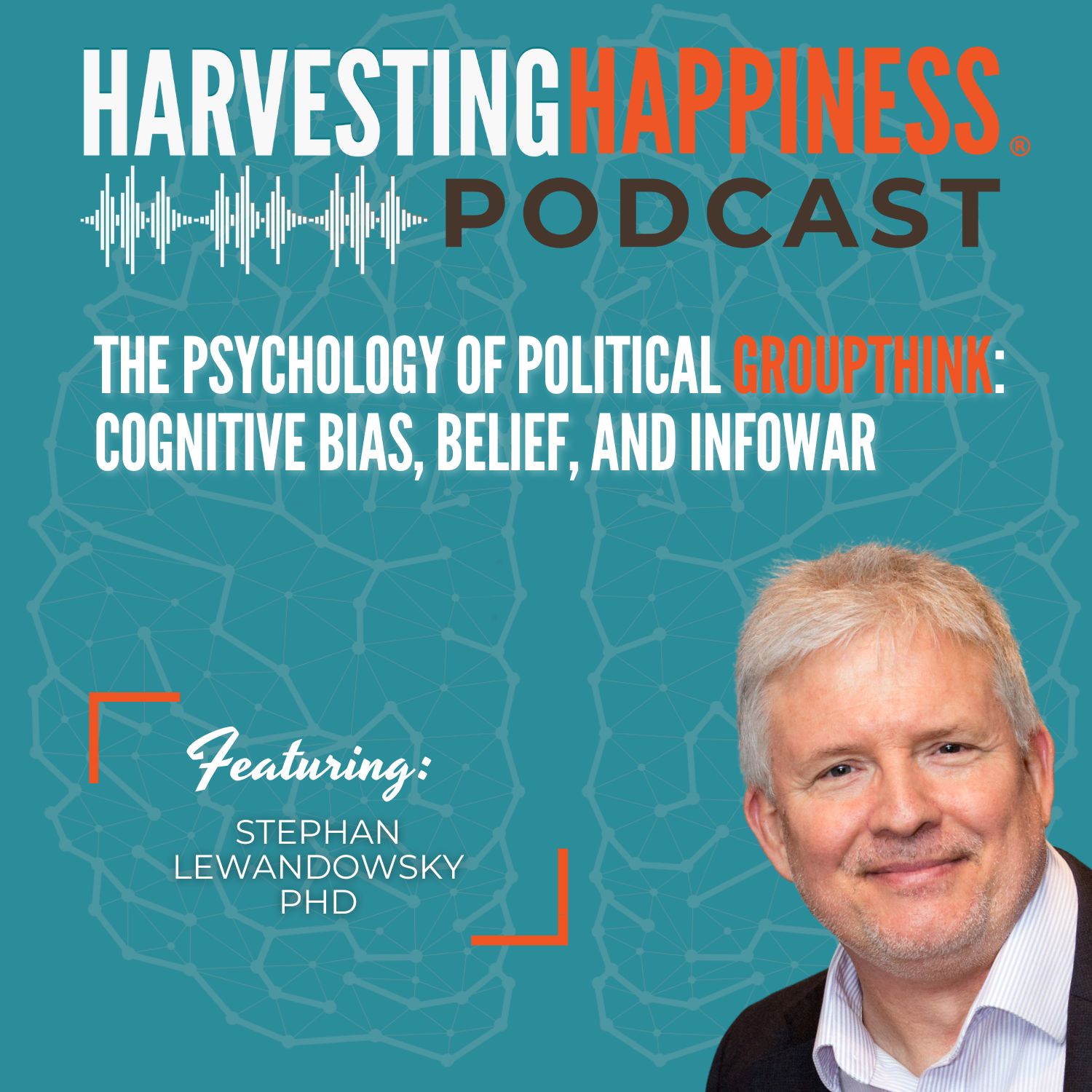
The primary goal of most media sources is to make money by pushing a political agenda and influencing the psychology of those who ingest the content. In order to achieve their goals, people use data, misinformation, and deliberate disinformation as weapons, creating what is often called Infowar. This can lead to groupthink, which causes public fear, doubt, and cognitive bias. False stories are exaggerated to make more money from advertising, influence people's beliefs, or disrupt democratic institutions, as was seen in the 2016 election cycle. To discover how to build resiliency against disinformation and groupthink, Harvesting Happiness Podcast host Lisa Cypers Kamen speaks with cognitive scientist and CIRCE researcher Dr. Stephan Lewandowsky.
Stephan shares his research on how alternative facts gain acceptance, how technology and Infowars can undermine the democratic process, and tips on discerning fact from fiction when consuming media.
This episode is a special edition of the Good Citizens Election Season Survival Guide designed to help restore common sense and sanity in a crazy world…
Stephan Lewandowsky PhD — The Dangers of Political Groupthink:
- An example of how technology influences democracy. {3:17}
- How technology and social media can undermine the democratic process. {6:27}
- The architecture of honesty and how alternative facts gain currency. {8:00}
- Democracy crumbles when beliefs take precedence over evidence in the political arena. {14:32}
- Tips for building resilience against being misinformed through Infowars. {19:43}
















